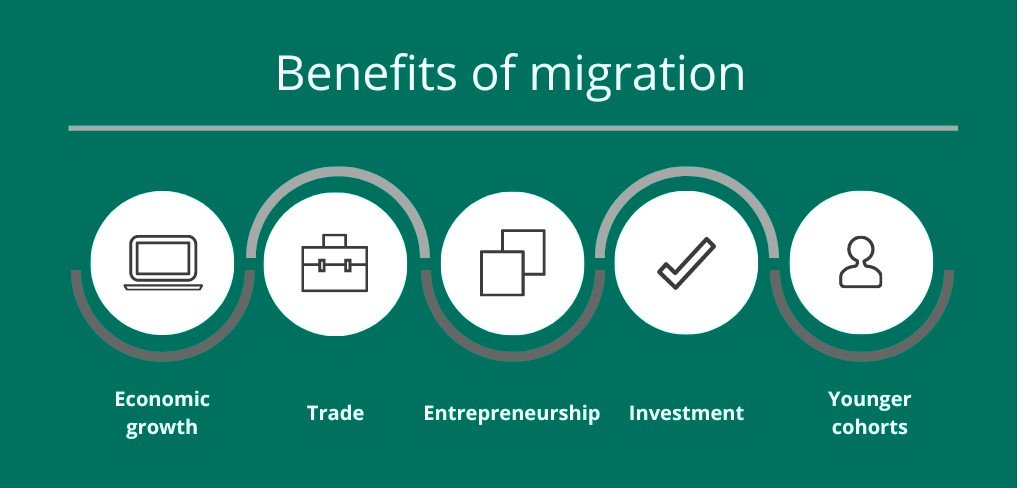Immigration Reform: Balancing Security and Compassion

Immigration reform is a multifaceted and complex issue that demands careful consideration of various factors, including security concerns, humanitarian values, economic impacts, and societal implications. In this comprehensive discussion, we will delve into the depths of immigration reform, exploring its historical context, current challenges, proposed solutions, and the intricate balance between security imperatives and compassionate considerations.
Historical Context of Immigration Policies
The history of immigration policies in any nation is shaped by a myriad of historical events, socio-political factors, and economic imperatives. From the Chinese Exclusion Act of 1882 in the United States to the post-World War II migration policies in Europe, immigration laws have been influenced by colonial legacies, labor demands, and geopolitical shifts. Understanding the historical context provides insights into the evolution of immigration policies and their impact on society.
Current Immigration Challenges
In the contemporary era, immigration poses a myriad of challenges for policymakers and society at large. On one hand, there are legitimate security concerns related to border management, terrorism, and transnational crime. On the other hand, there’s a moral imperative to address the plight of refugees, asylum seekers, and vulnerable migrants fleeing conflict, persecution, and poverty. Striking a balance between security imperatives and compassionate considerations is crucial in navigating these challenges.
Need for Comprehensive Immigration Reform
The complexity of immigration issues necessitates a comprehensive approach to reform. This involves not only addressing immediate security concerns but also addressing underlying structural issues in the immigration system. Comprehensive reform should encompass border security measures, pathways to legalization for undocumented immigrants, refugee and asylum policies, and efforts to combat human trafficking and exploitation. By addressing these interconnected issues, policymakers can develop a holistic approach to immigration reform that balances security and compassion.
Proposed Solutions
Addressing immigration challenges requires a multifaceted and nuanced approach. Enhancing border security through technological advancements, such as surveillance drones, biometric screening, and digital border infrastructure, can help deter illegal immigration and improve border management. At the same time, providing pathways to legalization for undocumented immigrants, such as comprehensive immigration reform with a focus on family reunification, merit-based immigration, and temporary worker programs, can address the needs of immigrants already residing in the country.
Additionally, reforming refugee and asylum policies to streamline the asylum process, increase humanitarian aid to refugee-hosting countries, and address the root causes of forced migration can help alleviate the suffering of refugees and asylum seekers while upholding international obligations.
Economic Impacts of Immigration
Immigration has profound economic implications, shaping labor markets, entrepreneurship, and overall economic growth. Immigrants often contribute to the workforce in key sectors such as agriculture, construction, hospitality, and healthcare, filling critical skill gaps and driving innovation.
Moreover, immigrants are more likely to start businesses and create jobs, contributing to economic dynamism and revitalizing declining communities. Studies have shown that immigrants not only contribute to economic growth through their labor but also their consumption patterns, tax contributions, and entrepreneurial activities.
Read More: The Impact of Immigration Policies on Economic Growth
Societal Benefits of Immigration
Beyond economics, immigration enriches societies in myriad ways. Immigrants bring diverse perspectives, cultures, languages, and traditions, contributing to the cultural vibrancy and diversity of communities. Moreover, immigrants often serve as cultural ambassadors, bridging divides and fostering cross-cultural understanding and tolerance.

Studies have shown that diverse communities are more innovative, creative, and resilient, benefiting from the exchange of ideas, experiences, and perspectives that immigration brings. Additionally, immigrants play a crucial role in addressing demographic challenges such as aging populations and declining birth rates, ensuring the long-term sustainability and vitality of societies.
Opposition and Challenges
Despite its benefits, immigration reform faces opposition from various quarters, including political factions, special interest groups, and segments of the public. Opposition to immigration is often rooted in concerns about job competition, wage suppression, cultural assimilation, and national identity.
Moreover, misinformation, stereotypes, and political rhetoric often fuel anti-immigrant sentiments, leading to polarization and division within society. Overcoming these challenges requires not only addressing legitimate concerns but also countering myths and misconceptions with evidence-based arguments, empathy, and dialogue.
Public Opinion and Attitudes
Public attitudes toward immigration are influenced by a myriad of factors, including historical legacies, cultural norms, economic conditions, and political rhetoric. While some segments of the population may harbor anti-immigrant sentiments, others may be more welcoming and supportive of immigrants and refugees.
Moreover, public opinion on immigration is often shaped by media portrayals, political discourse, and personal experiences, leading to varying perceptions and attitudes across different communities and demographic groups. Understanding the complexities of public opinion on immigration is crucial in shaping policy responses and fostering inclusive and constructive dialogue.
Global Perspective on Immigration
Immigration is a global phenomenon that transcends national borders and jurisdictions. In an interconnected world characterized by globalization, climate change, conflict, and economic disparities, migration has become an increasingly salient issue for countries around the globe. Addressing global migration challenges requires international cooperation, coordination, and solidarity.
Moreover, it requires a recognition of the shared responsibility of countries to protect the rights of migrants, refugees, and asylum seekers, uphold international humanitarian law, and address the root causes of forced migration. By working together, nations can develop more effective and humane responses to the complexities of global migration.
Case Studies and Success Stories
Examining immigration policies and reform initiatives in different countries provides valuable insights into what works and what doesn’t. Successful reform efforts often involve bipartisan collaboration, evidence-based policymaking, and community engagement. Countries such as Canada, Australia, and New Zealand have implemented merit-based immigration systems that prioritize skilled immigrants who can contribute to the economy and society.
Moreover, countries such as Germany and Sweden have implemented innovative refugee resettlement programs that provide comprehensive support and integration services to refugees, facilitating their successful integration into society. By studying these case studies and success stories, policymakers can learn from best practices and develop more effective immigration policies and programs.
The Role of Technology in Immigration Management
Advancements in technology have revolutionized immigration management, facilitating more efficient border control, identity verification, and document processing. Biometric screening, digital border infrastructure, and data analytics have enhanced border security measures, enabling authorities to detect and deter illegal immigration and transnational crime more effectively.
Moreover, digital documentation systems and online platforms have streamlined administrative processes, such as visa applications, refugee registration, and asylum processing, improving efficiency and transparency. Leveraging technology can enhance the effectiveness of immigration management while safeguarding the rights and dignity of migrants, refugees, and asylum seekers.
Ensuring Fairness and Equity
A crucial aspect of immigration reform is ensuring fairness and equity in the system. This includes addressing systemic biases, such as racial profiling and discrimination, in immigration enforcement and adjudication. Moreover, it involves providing equal opportunities for all migrants, regardless of their race, ethnicity, religion, gender, sexual orientation, or socio-economic status.
Additionally, it requires safeguarding the rights of vulnerable populations, such as children, women, LGBTQ+ individuals, and refugees, by providing access to legal representation, social services, and protection from exploitation and abuse. By promoting fairness and equity in the immigration system, policymakers can build trust and confidence among immigrants and the broader community, fostering social cohesion and integration.
Implementing Effective Enforcement Mechanisms
Effective enforcement mechanisms are essential for ensuring compliance with immigration laws and regulations. This involves robust oversight, accountability measures for law enforcement agencies, and mechanisms for addressing violations and abuses. Moreover, it requires upholding due process rights, such as the right to a fair hearing, the right to legal representation, and the right to appeal decisions, for migrants, refugees, and asylum seekers.
Additionally, it involves providing training and resources to law enforcement personnel to ensure that they are equipped to handle immigration-related issues sensitively, ethically, and professionally. By implementing effective enforcement mechanisms, policymakers can uphold the rule of law while protecting the rights and dignity of all individuals within their jurisdiction.
Read More: 10 Essential Immigration Tips for UK Visa Success
Conclusion
In conclusion, immigration reform is a multifaceted and complex issue that demands a balanced and nuanced approach. By addressing security concerns while demonstrating compassion towards vulnerable populations, policymakers can develop immigration policies that are fair, just, and sustainable. Moreover, by fostering inclusive dialogue, promoting evidence-based policymaking, and engaging with diverse stakeholders, nations can develop more effective and humane responses to the challenges of immigration in the 21st century.
FAQs
How does immigration impact the economy?
Immigration has significant economic impacts, including filling critical skill gaps, driving innovation, and stimulating economic growth through labor force participation, consumption, and entrepreneurship.
What are the key challenges in implementing immigration reform?
Key challenges in implementing immigration reform include political polarization, vested interests, bureaucratic hurdles, and public misconceptions about immigration.
How can technology improve border security and immigration management?
Technology can improve border security and immigration management through biometric screening, digital border infrastructure, data analytics, and online platforms for document processing and identity verification.
What role do public attitudes play in shaping immigration policies?
Public attitudes toward immigration shape political discourse, policy priorities, and public opinion, influencing the development and implementation of immigration policies.
How can nations collaborate to address global migration challenges?
Nations can collaborate to address global migration challenges through international cooperation, coordination, and solidarity, upholding international humanitarian law and protecting the rights of migrants, refugees, and asylum seekers.











